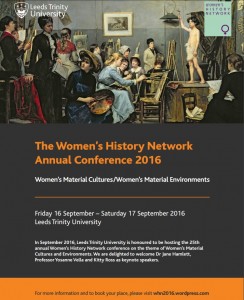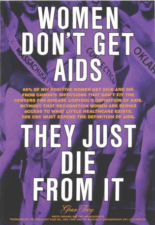
WHN Admin.
The following presenters have been generous in providing the abstracts of the papers that they will present at the conference: Dr Pam Jarvis, Bernadette Cahill and Teresa Barnard. These abstracts appear below. Additional presenters are being approached for permission to post their work on the blog. Further abstracts will be posted throughout the weeks leading to the conference. Thank you to all the writers for your generosity, the abstracts provide a welcome addition to the WHN Blog.
Teresa Barnard
Letters to Emma: Epistolary Material Culture.
Can epistolary culture be considered material? Alexander Pope defined letters as sentient ‒ they ‘live’, ‘speak’, ‘breathe’. Letters articulate what it means to be human at a certain time and place. Speaking of topical events, letters can also reveal the life of both author and recipient. The published letter-books of eighteenth-century poet, Anna Seward, have much to tell us about the culture of her time. Seward was one of Britain’s foremost Augustan poets and her broad-ranging, frequently masculinist themes are testament to her engagement with all aspects of the intellectual world. But Seward also left a fascinating body of prose works, including a juvenile journal, which have remained unexplored.
Shortly before she died, Seward collated her writings for posthumous publication, arranging for the manuscripts to be sent to Walter Scott for editing. Following convention, she included autobiographical correspondence as a means of self-expression, including a juvenile journal in the form of letters addressed to an imaginary friend, Emma. Scott took the letters at face value and removed the personal anecdotes, effectively censoring a voice that told of young women’s attempts to negotiate the complex workings of the marriage market. Scott excised Seward’s contemplations and complaints on the gendered inequalities of education and career, depriving us of stories of glittering balls, duels, arranged marriages, love, learning, life and death. Fortunately, Scott did not destroy the anecdotes and this paper makes a case study of one of the letters as a ‘living’, ‘speaking’, ‘breathing’ example of epistolary material culture.
Teresa Barnard is an independent scholar with an interest in eighteenth-century women’s writing. She has authored books, articles and chapters, her most recent publication being British Women and the Intellectual World in the Long Eighteenth Century (Ashgate, 2015). She is presently working on Seward’s unpublished prose writings.

Bernadette Cahill
Where there’s a will, there’s a crowd of greedy relatives:
Women’s rights and men’s wrongs in the United States 1848-1870.
When U.S. women began working in 1848 for equal rights, they almost immediately ran into money problems. The situation improved in the late 1850s when two bequests for women’s equal rights campaigns quickly enabled them to achieve their first major success: reform of New York laws that adversely affected married women. Yet from this peak of achievement, the story went downhill fast, with women facing major challenges to keep what was rightfully theirs for their work. Against them in a lawsuit they found not just the benefactor’s family, but dubious trusteeship and judicial bias; in the other instance, they encountered breach of trust. The impact of the consequent stoppage of funds to women was immediate, rendering it impossible for them to win the right to vote in the one state which allowed the issue to go to the ballot in that period. With no national precedent as a result, this situation set the stage for what would become a long, tortuous campaign for the vote that ultimately took a total of 72 years.
Bernadette Cahill is an independent scholar who has produced countless articles about women’s rights throughout her professional life. An Honours M.A. history graduate of Glasgow University, author of Alice Paul and the Right to Vote: the First Civil Rights Struggle of the 20th Century, (McFarland: Jefferson, North Carolina, 2015) and of Arkansas Women and the Right to Vote: The Little Rock Campaigns, (Butler Center Books: Little Rock, Arkansas, 2015), she currently resides in Northeast Louisiana, where she is writing a book about the origins of the early United States suffrage movement and the obstacles women had to counter on their road to victory in 1920.

Pam Jarvis
Title: The Genesis of British Educare: Margaret McMillan and Susan Issacs
Objectives
• To explore the work of Margaret McMillan (1860-1931) and Susan Isaacs (1885-1948) and the rolling out of the concept of ‘educare’ in Britain; piloted in rather different ways through each of their nursery settings.
• To explore the problems experienced by each woman due to the clash of their maternalist agendas with the ‘malestream’.
• To consider the relevance of ‘educare’ concepts to modern education and what the experiments of these pioneers have contributed to modern education practice and policy, particularly in the early years
Perspectives
McMillan introduced the concept of ‘educare’ into Britain, initially in her work on the Bradford School Board between 1894 and 1902. She engaged in battles on many fronts in order to progress her reforms, principally with various arms of government, and surprisingly, with the Nursery School Association. Susan Isaacs further developed the concept of educare from her perspective of Kleinian psychoanalysis; her battles were thence with the male dominated Freudian theory. Both McMillan and Isaacs contributed to what are today established practices in early years education and both engaged in a debate which is still ongoing today, that of maternalist concepts and practices and their differences with ‘malestream’ social policy. In this frame, the agendas of children and families are systematically subjugated to national agendas premised upon the national and international economy; this has been previously discussed by the author in her article Jarvis, P. and Liebovich, B. (2015) British Nurseries, Head and Heart: McMillan, Owen and the genesis of the education/ care dichotomy.
Dr Pam Jarvis is a Senior Lecturer in the Institute of Childhood and Education at Leeds Trinity University. She is responsible for the Symposium Proposal: Early Female Pioneers in British and American Education: Exploring Maternalist and Feminist Agendas


